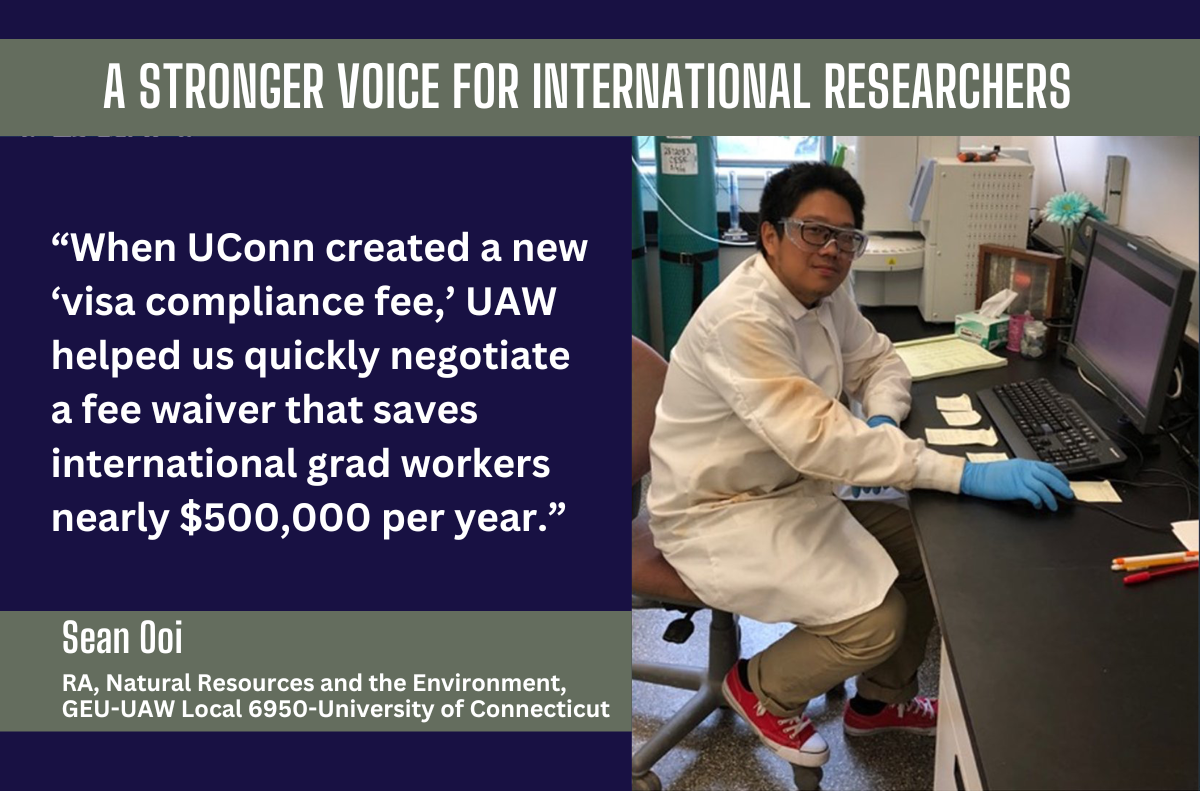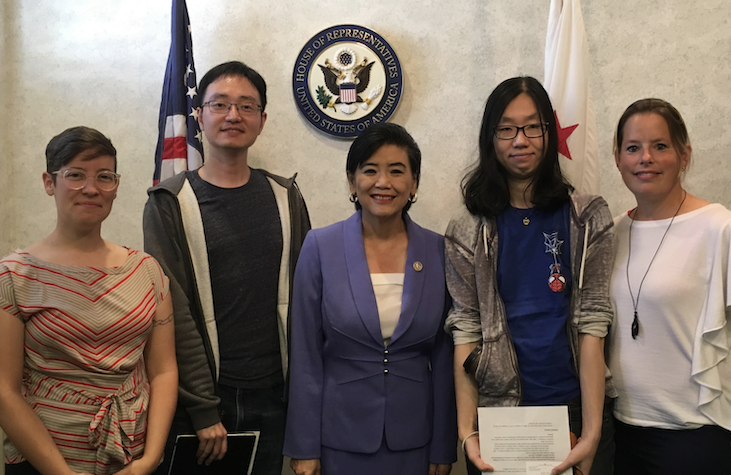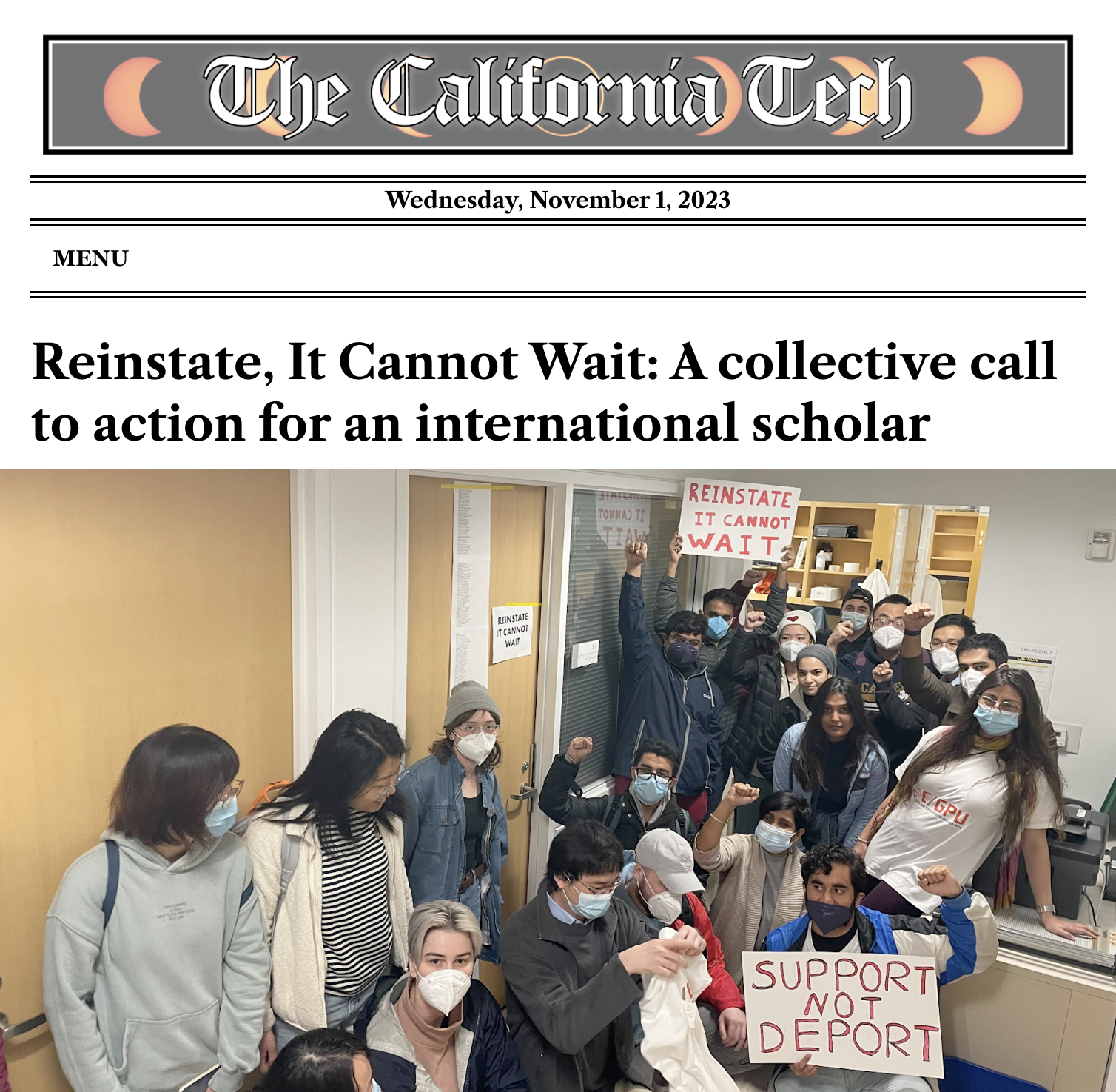International researchers have the same legal right to join unions as US citizens
Under US law, international postdocs and grad student employees have the same rights to join and participate in unions as US citizens. This includes anyone on a F1, J1, or H1B visa. In fact, tens of thousands of international postdocs and students are part of unions already, including at institutions like the UC system, University of Southern California, MIT, Harvard, Columbia University, and University of Washington.
Unions are especially important for international researchers
As international scholars, we face unique challenges and greater precarity due to our status as visa holders. This can come from multiple sources—changing Federal immigration policies that affect scholars and their dependents, challenges with housing and healthcare, and bureaucratic university processes. On top of this, recent surveys conducted by Nature have found that international researchers due to the instability of their visa status, feel more vulnerable and are more likely to face certain types of abuse.
Unions help address all of these issues by building a supportive community in which all researchers can thrive and empowering us to negotiate an enforceable contract with Caltech administration. Our contract can include provisions like protections from abusive conduct, protection from unfair termination, low-cost healthcare, guaranteed vacation, and provisions that help avoid work-authorization delays (see for example UC grad researchers and UC postdocs). Unions provide international scholars with greater security, a platform for advocacy, and a stronger community.
Academic unions work together for more just and fair US immigration policy
Research is an international endeavor and the entire scientific community benefits from just and fair visa and immigration policies that treat scholars with dignity and respect irrespective of their place of origin.. For example, UAW academic workers have worked together to:
- Stop the “fixed duration of status” rule from going into effect
- Expand and extend Optional Practical Training (OPT)
- Oppose the 1-year period of validity for Chinese entry visas
- Organize information sessions in response to changing immigration policy
- Extend the initial postdoc employment contract to a 2-year period to reduce visa costs and provide immigration stability for scholars and their dependents
How do other union contracts improve job security and protect researchers from abuse?
Academic unions have been able to win provisions in union contracts that define discrimination, harassment, and abusive conduct. They can also have provisions that prevent unfair termination, guarantee multi-year postdoc appointments, and protect against overwork. Crucially, these protections are enforceable through a grievance process. A strong union grievance process, like the one grads and postdocs won for the UC system, includes:
- Representation throughout the process, so that if you file a grievance you are supported and not going through it alone
- Timelines so that issues are dealt with in a timely manner
- Interim measures that must be taken in cases of harassment, discrimination, or abuse so that the grad/PD can continue to work in a safe environment while an investigation takes place
- The ability to appeal to a neutral third party
What about strikes?
Striking is a tactic some groups of academic employees have chosen to use in response to unfair labor practices or employers refusing to engage at the bargaining table. In UAW, a strike must be authorized by a 2/3rds vote, and no individual can be compelled to participate in a strike.
Many protections exist to ensure the rights of international scholars to participate in union actions, including strikes, and there have been no reported instances of international scholars facing negative consequences to their visa status as a result of going on strike. Any action taken by Caltech against international scholars for participating in union activity, including a strike, would be considered retaliation and is illegal under the National Labor Relations Act. Not to mention the outrage it would likely provoke from the broader academic community in the US and abroad.
Successful strikes are generally planned months in advance and discussed in campus town halls, in department meetings, and amongst members of the same lab groups. They can be a powerful way to put pressure on an employer to cease stalling at the bargaining table and agree to a fair contract (for example recent contracts at University of California and University of Washington). That said, many academic union contracts are negotiated without resorting to a strike (for example MIT). By forming a union, we will gain the right to negotiate with Caltech about our working conditions, and will be able to evaluate and choose for ourselves the tactics that are right for us to reach a fair agreement.
“During my time here, I have personally experienced threats to my safety and health on an improperly planned field trip, after which it also turned out to be extremely hard to acquire an acknowledgement of the incident on a divisional or institutional level. I have also witnessed my cohorts struggling when they were treated improperly and yet had no way to defend themselves. Some of whom ended up leaving Caltech. A union will provide one with legal ways to defend ourselves and talk to the administration equally when things like these happen again.”
“A union provides a democratic way for every grad and postdoc to express their needs and issues. Right now the only way to change anything is by requesting the higher authorities, who are under no obligation to actually do anything. A union provides a weight to these voices, it allows for a more fair and reasonable discussion between the administration and the students as equals. A lot of us are very privileged to have guides and peers who encourage and support us, they enable us to do well in both our professional and personal lives. But unfortunately, not every student at Caltech is so lucky.”
How do academic unions help with visa and immigration issues?
- MIT won a $1,200 reimbursement for visa-related costs. Their contract also includes new protections for international grads, like timelines within which the International Student’s Office must respond to inquiries.
- Harvard grads won a $100,000 annual fund to reimburse some of the costs associated with immigration and maintenance of legal working status within the United States.
- UC’s recent contracts guarantee days off for visa-related appointments and guarantees remission of the Non-Resident Student Tuition fee for PhD candidates.

“Living in Southern California is expensive, and right now, graduate student researchers and postdocs have little concrete say in how decisions about our salaries, healthcare, and benefits are allocated from year-to year. I believe a union is the best route to creating a more democratic workplace that benefits researchers from all backgrounds, helping to close existing gaps in equity and making working conditions better across our institute.”

UAW Local 2865 and UAW 5810 union members with Congresswoman Judy Chu discussing her Dear Colleague Letter in support of Chinese international students at her office in Pasadena, 2018.

